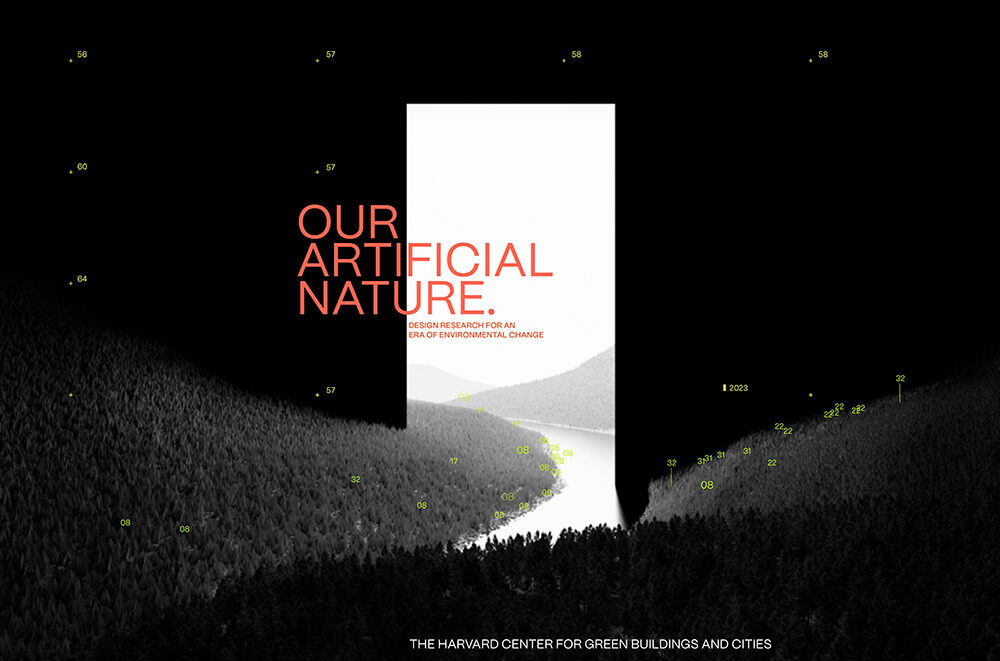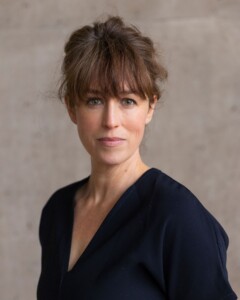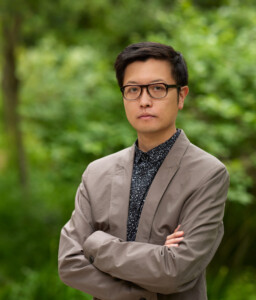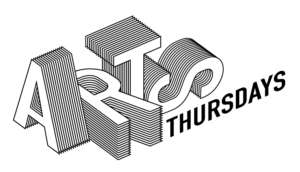Our Artificial Nature: Perspectives on Design for an Era of Environmental Change

A recording of this event is available with audio description.
Event Description
On the occasion of the opening of the exhibition Our Artificial Nature, featuring Harvard Center for Green Buildings and Cities core and affiliated research faculty, the GSD hosts a candid dialogue on the trajectory of design research and practice in response to environmental change.
Carson Chan, curator of the concurrent MoMA exhibition Emerging Ecologies: Architecture and the Rise of Environmentalism, will engage GSD faculty members Elizabeth Christoforetti, Grace La, and Antoine Picon in a conversation about past design speculations, current research, and practice futures.
The conversation will address the cultural, social, and technological processes emerging within design discourse that aim to address ecological imperatives. The event will call attention to the idea that design practice is the creation of the artificial, as well as the imagination of our constructed environment in a moment when our designed and natural worlds are fused. Both the event and exhibition aim to situate current research within a history of design for environmental change, framing new paradigms for environmental design.
This event is part of ArtsThursdays, a university-wide initiative supported by Harvard University Committee on the Arts (HUCA).
Speakers
 Elizabeth Bowie Christoforetti is an Assistant Professor in Practice of Architecture at the GSD and Design Director of Supernormal.
Elizabeth Bowie Christoforetti is an Assistant Professor in Practice of Architecture at the GSD and Design Director of Supernormal.
Elizabeth’s teaching and research focus on emerging modes of design practice in the built environment. Her work at the GSD explores design methods, theories, and the technological building blocks that enable design practice to better confront the imperatives of our time, such as artificial intelligence and market-driven urbanism. Her research group within the Laboratory for Design Technologies aims to uncover the potentials for scalable systems of design by daylighting, operating upon, and designing new socio-technical systems–design that is dependent upon a combination of social and technological processes, and collaboration between them.
Elizabeth directs Supernormal, a design studio based in Cambridge, MA. She founded Supernormal to create meaningful and practical change through the intersection of architecture, urbanism, technology, and contemporary culture. Elizabeth directs Supernormal as an engaged design practice that meets the world exactly as it is, and with a glass that is half full.
Her design practice, research, and teaching explore the cultural implications of large data sets, human-machine collaboration, and scalable systems of design. Elizabeth’s work joins a perspective of radical pragmatism with a deep value for the potential of design imagination.

Carson Chan is the inaugural Director of the Emilio Ambasz Institute for the Joint Study of the Built and Natural Environment, and a Curator in the Museum’s Department of Architecture and Design. He develops, leads, and implements the Ambasz Institute’s manifold research initiatives through a range of programs, including exhibitions, public lectures, conferences, seminars, and publications. Before joining MoMA in 2021, he worked as an architecture writer, curator, and educator. In 2006 he cofounded PROGRAM, a project space and residency program in Berlin that tested the disciplinary boundaries of architecture through exhibition making. Chan co-curated the 4th Marrakech Biennale in 2012, and the year after he served as Executive Curator of the Biennial of the Americas in Denver. He holds a bachelor of architecture degree from Cornell University and a master’s of design studies from Harvard Graduate School of Design. His doctoral research at Princeton University tracks the architecture of public aquariums in the postwar United States against the rise of environmentalism as a social and intellectual movement. He is a founding editor of Current: Collective for Architecture History and Environment, an online publishing and research platform that foregrounds the environment in the study of architecture history.

Anyone requiring accessibility accommodations should contact the Public Programs Office at (617) 496-2414 or [email protected].
#GSDEVENTS